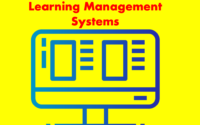
Adjunct Faculty Participation in the Centralized Design of Online Courses
This literature-based study seeks to identify best practices for adjunct faculty participation in the centralized design of online courses. Literature from 2014–June 2018 relating to faculty participation in course and curriculum design was identified through a search of the ERIC database. Following further examination, nine studies were selected for analysis. These were analyzed within the […]
















